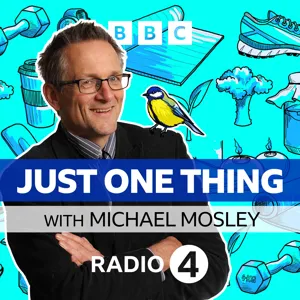Podcast Summary
Discover the Power of Beetroot: Beetroot can improve exercise performance, boost cognition, lower blood pressure, reduce inflammation, and maintain brain health as we age.
Key takeaway from this podcast episode is that consuming beetroot or beetroot juice can have numerous health benefits. Beetroot has been shown to improve exercise performance and endurance, boost cognition and decision-making abilities, lower blood pressure, and reduce inflammation. It may also help maintain brain health as we age. The episode's host, Doctor Michael Mosley, shared his personal experience of making sauerkraut at home and consuming beetroot shots before activities to enhance his performance. He also spoke with Annette, an NHS worker, who experiences a slump during her night shifts and reaches for coffee to help. Annette expressed her commitment to being healthier this year and was open to trying beetroot as a potential alternative to her usual caffeine fix. Overall, the episode emphasizes the simple yet effective way of incorporating beetroot into one's diet as a means to enhance both physical and mental well-being.
The Power of Beetroot: A Superfood for Enhanced Performance and Cognitive Function: Beetroot, rich in betalains and nitrates, boosts performance by increasing blood flow and enhances cognitive function in older adults, best consumed 2 hours before a workout, may improve libido, but be prepared for pink urine.
Beetroot, a vegetable often overlooked, is a true superfood due to its high content of betalains, powerful antioxidants, and nitrates. Nitrates, when consumed through vegetables like beetroot, get converted into nitric oxide in the body, increasing blood flow to various organs, including the brain and the penis. This improvement in blood flow leads to enhanced exercise performance, improved cognitive function in older adults, and potentially even a boost in libido. The recommended intake is around 2-3 medium-sized beetroots a day or shots of beetroot juice, best consumed 2 hours before a workout. While the juice may have an acquired taste, the potential health benefits make it worth trying. Just remember, your wee might turn pink!
Boost exercise performance with beetroot: Beetroot and its nitrate content can enhance muscle efficiency and oxygen distribution, improving exercise performance during high-intensity workouts within 2-3 hours.
Beetroot and beetroot juice have been found to significantly improve exercise performance, particularly during high-intensity workouts. This is due to the presence of dietary nitrate, which enhances muscle efficiency by reducing the amount of energy required to produce the same amount of force and improving oxygen distribution within the muscle. The effects can be noticed around 2-3 hours after consumption, as the body processes the nitrate and converts it into nitrite. This discovery has led to the widespread use of beetroot juice among athletes to boost their performance. However, it's important to note that consuming beetroot juice may cause a change in urine color, which can be slightly distressing but is otherwise harmless. Ongoing research is being conducted to further explore the health benefits of beetroot and its impact on various aspects of physical performance.
Nitrates from foods like beets can lower blood pressure: Eating foods rich in nitrates, such as beets, can improve blood flow and potentially reduce risk of cardiovascular events by 3-9 mmHg through conversion to nitric oxide.
Consuming nitrates, found in foods like beets, can lead to a decrease in blood pressure. This occurs due to the conversion of nitrates into nitrites and then nitric oxide, a vasodilator that widens blood vessels and increases blood flow. The effect on blood pressure, which can range from 3 to 9 millimeters of mercury, can be significant for the population as a whole, potentially reducing the risk of cardiovascular events like heart attacks and strokes. The method of cooking can impact the amount of nitrates retained, with roasting or baking being more effective than boiling. Aiming for a daily intake of 6 to 10 millimoles of nitrate, equivalent to 2 to 3 beetroots, can yield benefits, but even lower, more chronic consumption may also be beneficial. After a week of incorporating beetroot into her diet, Annette reported improved energy levels during her night shifts and better workouts, and she plans to continue consuming it regularly.
Discover the benefits of beetroot for heart, brain, and performance: Incorporating beetroot into your diet can improve blood flow, reduce blood pressure, and enhance physical performance due to its natural nitrate content
Incorporating beetroot into your diet could bring significant benefits for your heart, brain, and physical performance. The natural nitrate content in beetroot helps improve blood flow and reduce blood pressure. It's an easy addition to your daily routine that could make a positive impact on your overall health. The next episode of "Just One Thing" explores the benefits of eccentric exercises, such as running downhill or slow squats, for building stronger bones and muscles. While it's essential to prioritize your health, unexpected medical bills can still be a concern. UnitedHealthcare's Health ProtectorGuard fixed indemnity insurance plans offer extra coverage to help manage out-of-pocket costs without usual requirements and restrictions. Lastly, Quince provides high-quality fashion essentials at affordable prices, with a commitment to safe, ethical, and responsible manufacturing.




